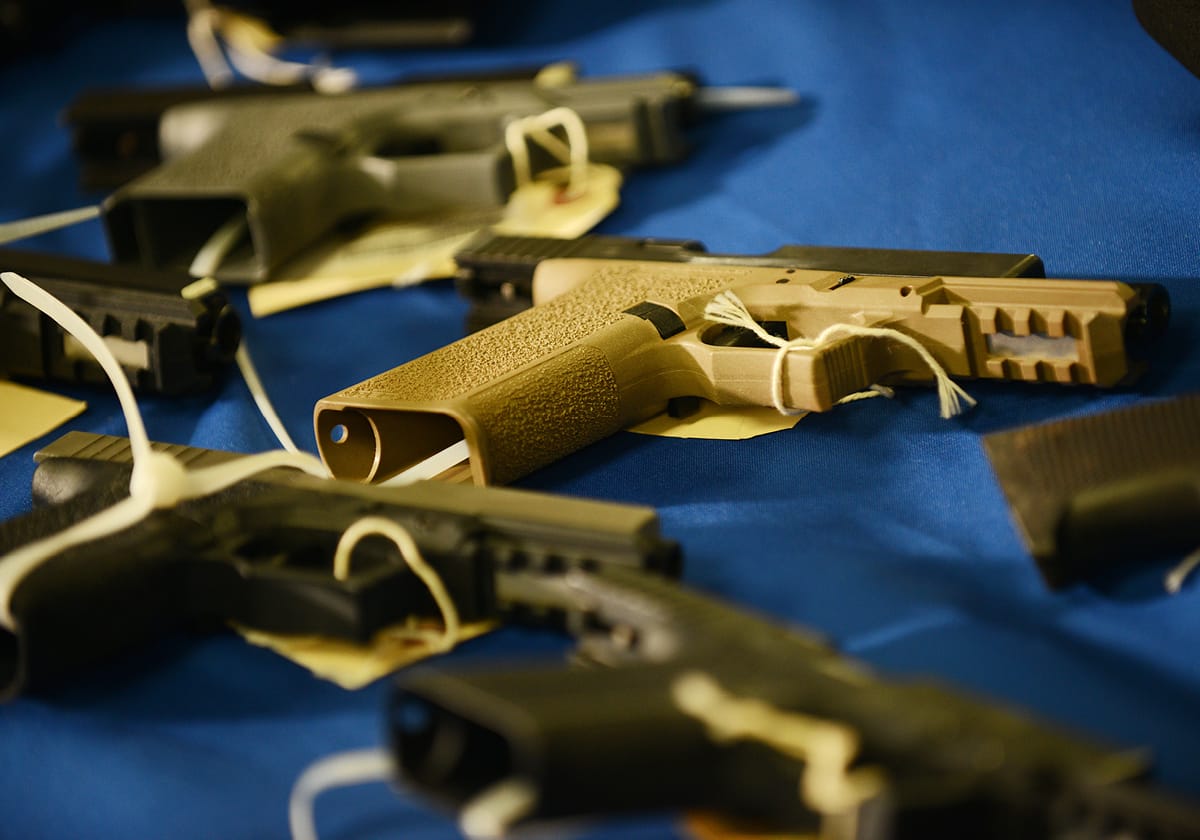
Ghost Guns Are Specifically Designed for Criminals
During my 25 year-career at the Bureau of Alcohol, Tobacco, and Firearms (ATF), I investigated a lot of gun crimes. As a member of the SWAT team and the Special Agent in Charge of ATF’s Firearm Programs, I learned a thing or two about how criminals get their hands on guns.
I witnessed firsthand the harms that “bad guys with a gun” can inflict on our communities and families. Contrary to what the NRA will tell you, “good guys with a gun” aren’t the best answer to this problem.
These days, we’re seeing an alarming new trend among criminals and firearm traffickers: ghost guns. Not enough people are talking about this growing threat, and that’s got to change.
Everyone—Republicans, Democrats, even the NRA—can agree that we don’t want criminals to get their hands on guns. By failing to pass legislation that curbs the spread of ghost guns, we’re playing right into the hands of criminals.
What are ghost guns?
Ghost guns, also called DIY guns, don’t have the serial numbers that allow law enforcement to trace guns from manufacturer to dealer to purchaser. They can be assembled at home from kits ordered on the Internet or manufactured with 3D-printers with no background check, no questions asked.
A number of online retailers sell “80% receivers” that come without serial numbers, because there’s no federal law requiring that unfinished receivers be serialized. While it used to be difficult to take the receivers the next 20% of the way and have a complete, lethal firearm, these days that’s fairly easy. Some people even host ghost gun build parties, where an expert shows people who don’t know what they’re doing how to finish a gun from an 80% receiver.
People who sell 80% receivers are doing so with complete disregard for the help they’re giving criminals to evade federal law. When these guns are used in crimes, there’s no way to trace them back to the purchaser.
Since 1988, over seven million guns have been traced, providing game-changing clues to police. Serial numbers are essential not only for solving individual crimes, but also for identifying firearm trafficking rings. Gun trafficking means that firearms are purchased from a dealer with the intention of diverting them to the black market.
One way for law enforcement to identify, and then investigate, potential traffickers is when serial numbers reveal that guns turning up at different crime scenes are being purchased by the same person. With ghost guns, law enforcement can’t make these connections.
Why do criminals love ghost guns? That’s a no-brainer. It makes their jobs easier.
Ghost guns make things too easy for criminals
There are clear winners here: criminals who can’t pass background checks, extremist groups that want to stockpile weapons without the government knowing, and firearms traffickers.
And there are clear losers: law enforcement, legislators trying to do their jobs to keep their constituents safe from gun violence, and the rest of us: ordinary Americans who want to go to school, to a movie theater, or to a park without fear of being shot by someone who never should have had access to a deadly weapon.
The problem of ghost guns has been growing steadily for years. Today more than 40% of crime guns recovered by ATF agents in California are ghost guns. And the fear that these guns will be used in tragedies has already been borne out. Criminals have used ghost guns to go on deadly rampages in California and Washington, and to ambush law enforcement.
I’m a gun owner who isn’t paranoid. I have no problem exercising my Second Amendment right while balancing that with the needs of police to thwart crime.
I get that some hobbyists want to build their own guns, and I think they should be able to do that. If I was going to build a gun, I would buy a finished receiver, with a serial number that could later be traced by police, from a gun store after passing a background check. I’d be free to finish the gun with the parts customized to my individual needs. There’s no reason everyone else can’t do the same.
Our laws need to keep pace with our technology
Our current federal gun laws are outdated and riddled with loopholes. They must be modernized to stay up-to-date with the technology that allows 80% receivers to be easily turned into fully functioning firearms with household tools, and to print guns in their own homes with code from the Internet.
The idea that rights should come without responsibilities is absurd.
I can’t build a street-legal car without a Vehicle Identification Number. I can’t manufacture pharmaceuticals in my basement. I shouldn’t be able to buy an 80% receiver online without passing a background check.
California, Connecticut, New Jersey, and Washington have already taken important steps to regulate ghost guns, but that isn’t enough—we need a federal standard. As a kid, I would drive from Ohio to Michigan to get fireworks. The same thing is happening with ghost guns today, with far deadlier consequences.
We have to balance the right of hobbyists to build their own guns with the needs of law enforcement to solve crimes. This means passing federal legislation limiting the sale of receivers to those that have been completed, marked, and serialized.
If making this relatively small change to our laws will help law enforcement do its job more effectively and keep our communities safe, it should be a no-brainer.